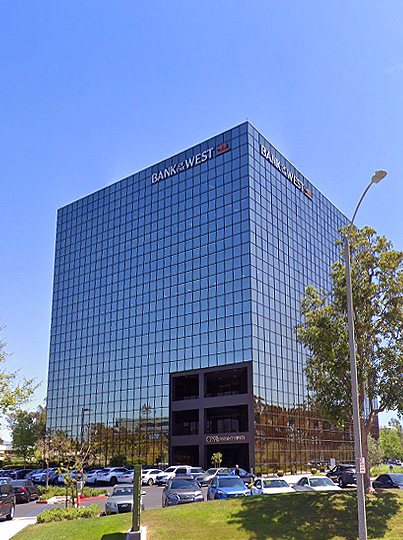What Duty of Care Is Owed to Roller Skaters?

Rolling skating has risen in popularity in the past year, largely due to skaters utilizing Tik-Tok to showcase their skills. With skaters posting everything from cool tricks at skate parks to dancing tutorials to lively roller rinks, almost every popular brand has reported being sold out of all their skates, leading to long wait times for new skates. That being said, new skaters should be aware of the apparent dangers of skating and understand that, while some injuries can be due to improper training or inexperience, there are situations where a property owner can contribute to a skater’s injuries.
The Rights of Roller Skaters
Whether it is roller skating, skateboarding, or even sports, most people assume there is some level of danger in performing strenuous activities. This is referred to as an “assumption of risk,” meaning that the skater knows they can be injured and are liable for their own injuries. It is often cited by property owners who are arguing that the injured party knew their actions could lead to an injury and, because of that knowledge, the injured party cannot hold the property owner liable.
There are definitely situations where the assumption of risk applies. If you are playing football, you accept the fact that you can accidentally break a bone, twist your ankle, or dislocate a shoulder in a game. This is through no fault of the other players unless they actively attacked you, but in a standard game, injuries are an assumed risk. Defendants often cite Knight v. Jewett (1992), a famous case in which California courts defined the basic tenants of assumption of risk in a football injury.
The same can be said for roller skaters. If you are practicing a new dance move at a park or roller rink and fall and break your wrist, it would be difficult to hold a property owner liable for your injuries. But there are exceptions to the assumption of risk doctrine.
While skaters do accept there is an inherent risk in skating, property owners who allow skaters on their premises must also do everything they can to keep that risk from increasing. For example, it is accepted that a roller skater can fall and injury themselves at a roller rink, but it is not assumed that they can be tripped by broken floorboards, spills, and loose carpets. In these instances, the risk of a slip and fall was increased by the property owner’s negligence, meaning they can still be found liable. Owners of roller rinks and skate parks do have a duty to create a reasonably safe environment and prevent unreasonable injuries.
But, you might be asking, what about liability waivers?
The Legality of Liability Waivers
Almost every business and property that hosts a recreational activity requires guests to sign some form of liability waiver, whether it is a skate park or gym. However, while these documents are common, they are not all equally enforced in California.
First, let’s break down what a liability waiver is designed to do. When you engage in a recreational activity where another individual owes you a duty of care, they may ask you to sign a document stating that you are foregoing your legal right to pursue a lawsuit against them if you are injured. These individuals can include property owners as well as individuals who provide services or goods, such as someone renting you a bicycle, taking you on a scuba trip, or letting you use a gym. While you may assume these documents are ironclad, that is not always the case.
In the state of California, the liability waiver must clearly explain to a guest or customer, in a language they understand, that there is a risk of suffering an injury and that the guest or customer understands that risk. These risks must also be plainly explained and, by signing the waiver, the guest or customer is expressly waiving their rights.
However, the language of the document is important. To return to roller skating, a waiver may not fully outline the risks a skater can suffer at a roller rink or skate park. While the waiver may acknowledge that a skater may suffer a head injury in a fall—generally all injuries will be described as “great bodily injuries”—it may not account for being injured by a loose electrical wire, old equipment or lights that fall off the walls or ceiling, or assaults caused by negligent security.
Waivers also do not protect property owners from liability in cases of gross negligence. All forms of negligence are relative and based on the idea that a property owner failed in their duty of care, but what separates gross negligence from ordinary negligence is how acceptable the actions taken by a property owner were.
According to a ruling in CITY OF SANTA BARBARA v. Terral Janeway (CACI No. 425.), California courts describe gross negligence as:
“Gross negligence is the lack of any care or an extreme departure from what a reasonably careful person would do in the same situation to prevent harm to oneself or to others.”
Under circumstances of gross negligence, an injured party could pursue damages from a property owner even if they were engaged in a recreational activity like roller skating. To do that, they would have to demonstrate how a property created an unreasonably unsafe environment, such as poorly maintained skater rinks, parks that have inadequate security for local crime rates, or ramps and pools that have a dangerous design.
But if you are injured due to a negligent skate rink or park owner, then you will need the aid of a skilled Orange County premises liability attorney to ensure you have a strong case. It may be hard at first to determine if you have a case of gross negligence or not, especially when it comes to recreational activities. Your best option is to speak to our team at Allen Flatt Ballidis & Leslie in a free consultation. We have more than 40 years of experience and can properly review all aspects of your case, from any liability waivers to your injuries, in order to determine if a property owner caused your injuries. To learn more, contact us at (949) 752-7474.
Even if you aren't sure you have a case, give us a call at (888) 752-7474, or fill out our Free Case Review below.
We are here to help.
 RSS
RSS


